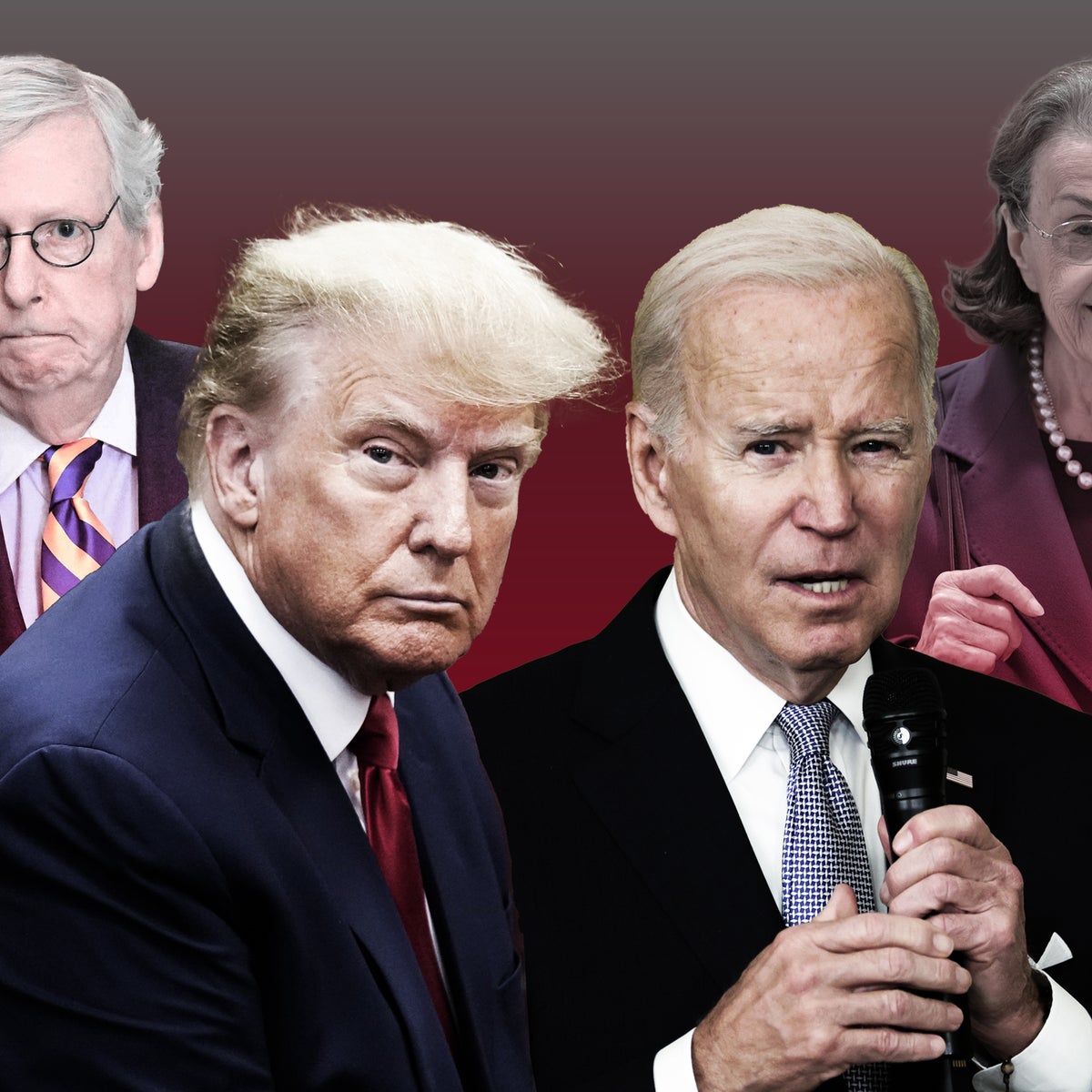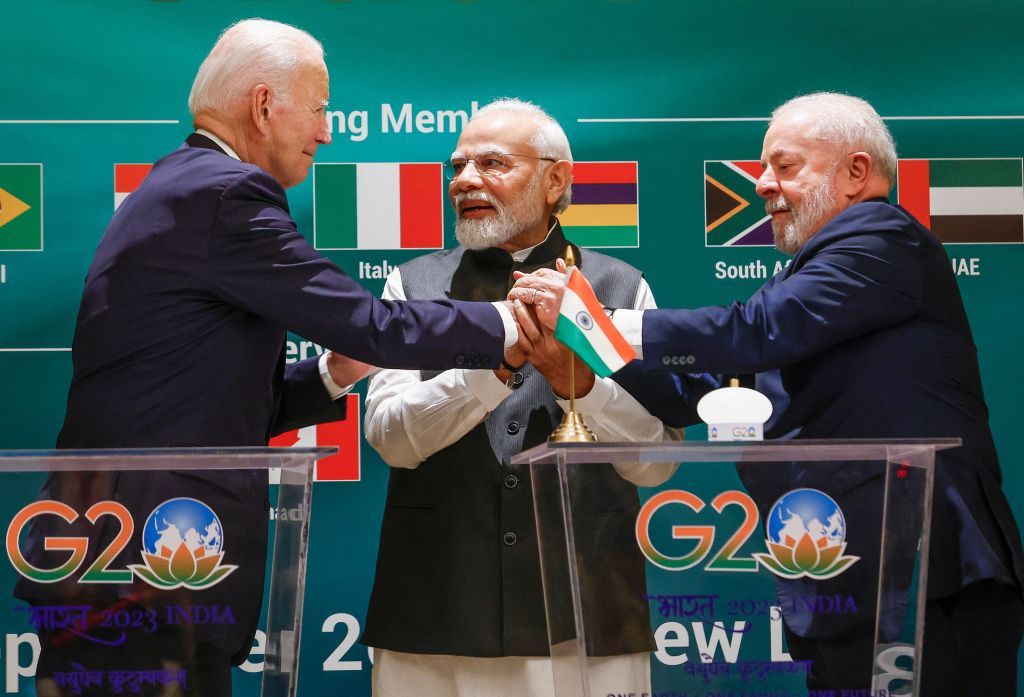Biden’s Visit to Vietnam Creates New Opportunities for Taiwanese Business
After the G20 summit in New Delhi concluded, Biden arrived in Hanoi on Sept. 10. Following former Presidents Barack Obama and Donald Trump, he is the third consecutive U.S. president to visit Vietnam. In a joint statement with Nguyen Phu Trong, the general secretary of the Communist Party of Vietnam, Biden announced that U.S.-Vietnam relations would be elevated to a comprehensive strategic partnership — a level of partnership that is higher than the original comprehensive partnership and is on par with the relationships that China and Russia have with Vietnam. Apparently, the decision to elevate the relationship with the U.S. was made after fierce debate within the Politburo of the Communist Party of Vietnam. At one point, Vietnam reportedly wanted to remove “comprehensive” and only elevate the relationship to a strategic cooperative partnership. This primarily has to do with Vietnam’s two concerns.
One concern is that Russia remains Vietnam’s largest weapons supplier. Before Biden’s visit, The New York Times reported that Vietnam recently purchased Russian arms despite Western sanctions. This did not, however, create an obstacle between the U.S. and Vietnam. In fact, in light of Ukraine’s plight, both Hanoi and Washington agreed that they must free themselves from dependence on Russian weapons.
The second concern is about relations with China. Hanoi is not worried about backlash from Beijing because China believes Hanoi “will never fall into Washington’s orbit.” In the few days before Biden arrived in Hanoi, Trong received Liu Jianchao, head of the Chinese Communist Party’s International Liaison Department, in a move meant to reassure Beijing.
China actually knows that while Vietnam is balancing diplomacy among great world powers, it will not ally strategically with the U.S., let alone go along with it on the issue of Taiwan or in “isolating China.” As long as China and Vietnam do not have a conflict over the South China Sea, Hanoi will continue to maintain its friendly relations with China, as well as simultaneously pursuing friendly relations with China, Russia and the U.S. Not offending anyone is in Vietnam’s best interests.
Still, the U.S. is fully aware that, regarding military security, although Asian-Pacific countries fear China regarding economics and trade, they are dependent on it, so the U.S. wants to strengthen economic and trade ties with Vietnam. This year, Vietnam’s economic growth decreased from 8% last year to 5.8%, heightening the pressure to elevate relations with the U.S. Biden’s purpose for this visit was to focus specifically on scientific and technological cooperation and Vietnam’s economic growth.
During the Trump administration, the U.S. began a tariff and trade war with China. Many Taiwanese businesses and foreign companies moved out of China, and American companies such as Apple, Nike and Walmart required suppliers to deepen investments in Vietnam to diversify supply chains. This is the “friendshoring” American officials emphasize, which refers to moving supply chains to allies such as Vietnam to prevent companies from being affected by political factors that would keep them from having uninterrupted and reliable supply.
This has increased U.S.-Vietnam trade. According to U.S. government data, American imports from Vietnam grew from $79.6 billion in 2020 to $101.9 billion in 2021, and last year they increased to $127.5 billion. The U.S. is currently Vietnam’s second largest trade partner, the first being China. Vietnam also jumped from being America’s 10th largest trade partner in 2021 to its eighth in 2022.
Lower wages and a younger population have made Vietnam an alternative to China. In this wave of emigration out of China, Vietnam has become the biggest beneficiary. Cooperation in high-tech areas such as cloud computing and artificial intelligence was a focus during Biden’s visit, and the two sides also reached an agreement on rare earth materials. Vietnam even purchased 50 Boeing 737 MAXs for a total of $7.8 billion. Regarding the new U.S.-Vietnam semiconductor cooperation, American semiconductor giant Intel pledged to invest $1.5 billion in its largest packaging and testing factory in the suburbs of Ho Chi Minh City.
Currently, Taiwanese investment in Vietnam, as approved by the Investment Commission, Ministry of Economic Affairs, is $13.05 billion, making Taiwan Vietnam’s fourth largest investor. Additionally, Taiwan-Vietnam trade reached $27.75 billion in 2022, an astonishing annual growth of 24.4% that made Taiwan Vietnam’s fifth largest trade partner.
This is a golden opportunity for Taiwanese businesses in Vietnam. On the one hand, the U.S. is creating a beneficial environment, and on the other, relations between China and Vietnam remain stable. How long this opportunity will last depends on how wise the Vietnamese government is in the game between the U.S. and China.


